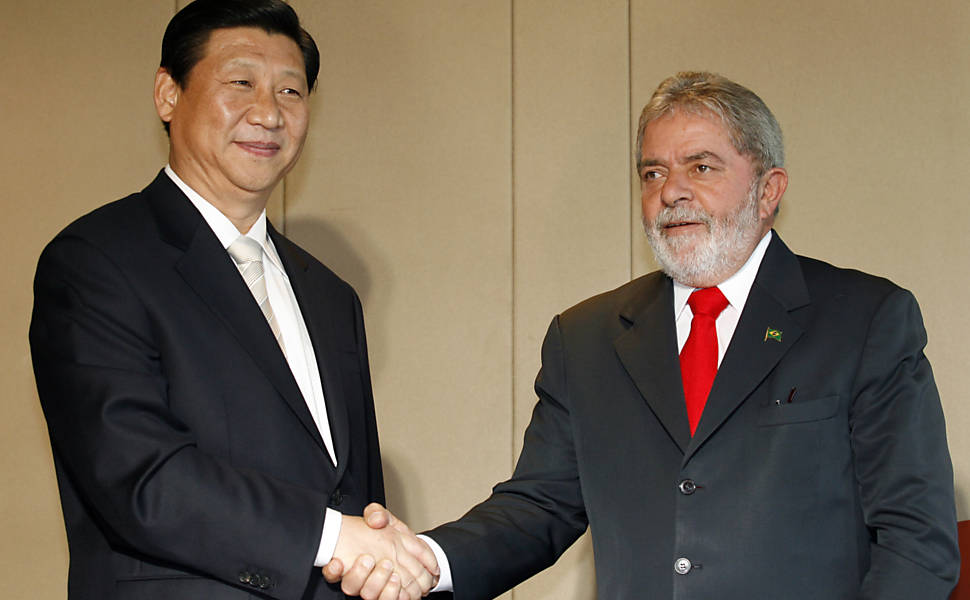Experts say that Brazil is ready to seek new forms of economic cooperation with China following the victory of Luiz Inacio Lula da Silva in the Brazilian presidential election.
Brazil’s former president (2003-2011), Lula da Silva, defeated Bolsonaro with 50.9% of the vote to 49.1% in the presidential runoff election on October 30.
In his first public statement, the newly elected president prioritized the fight against hunger and inequality.
According to da Silva, the political change in Brazil brought back a time when Brazil talked to the great powers as an equal, helped the poorest countries to develop, including in Africa, supported regional integration, and helped create the BRICS.

Brazil under Lula da Silva will be more active in the BRICS, Nadezhda Kudeyárova, acting head of the Center for Political Studies at the Latin American Institute of the Russian Academy of Sciences, predicted in an interview with Sputnik.
“Lula da Silva’s victory marks Brazil’s return to major regional and global politics (…) Brazil can be expected to be more proactive and engage more closely with its BRICS partners.
“With Bolsonaro, Brazil positioned itself as a country not very interested in actively developing this format. However, Brazil supported his participation in all BRICS forums.
“The previous periods of Lula da Silva’s government were marked by Brazil’s great activity in the international area in various interaction formats, where BRICS was one of the priorities.
“Therefore, in the coming years, a turn towards dialogue with China, among others, might be a trend in Brazil’s policy.”
Analyst Xu Shicheng of the Latin America Institute of the Chinese Academy of Social Sciences agrees that da Silva will boost Brazil’s participation in BRICS.
“Lula da Silva once led Brazil to become part of the BRICS, so he personally maintains ties with the countries in this group. During his election campaign, Lula da Silva promised to strengthen these relations if he won.
“Da Silva favors a strategic partnership with China and cooperation with Russia. Da Silva points out that the US cannot interfere in China’s foreign affairs and development,” he said.
He also pointed out that the Brazilian president-elect plans to re-establish South-South cooperation with Africa and Latin America, strengthen Mercosur and actively participate in international organizations such as the Union of South American Nations, CELAC, and BRICS.
When Lula da Silva was in power in 2009, China became Brazil’s leading trading partner. Since then, the Asian country has consistently maintained this position. The partners have consistently achieved high figures in mutual trade, especially in agribusiness.
Bilateral business flourished even during the pandemic. Last year, the trade volume between the two countries reached a new record high of US$135 billion.
Expert Kudeyárova made an optimistic forecast about Sino-Brazilian trade relations, stressing that the two countries are interested in this cooperation.
“Trade will thrive because China is interested in Brazil as a supplier of products, including agricultural products. And for Brazil, the Chinese market is extremely important.
“Another thing is that Brazil may seek new ways and new areas of economic interaction in terms of complicating the nomenclature of its exports to China,” he argued.
In his opinion, compared to Bolsonaro, Lula da Silva looks more perspective to strengthen diplomatic ties with China.
“Da Silva is a very experienced communicator, with great talent and experience in building relations with the leaders of other countries, so we can assume that Brazil will be able to intensify its policy in this area.
“Under Bolsonaro, economic relations between Brazil and China were very active, while diplomatic relations were cold. Based on the experience of previous administrations, the duality of Brazilian policy that existed under Bolsonaro may somehow transform into a closer political relationship.”
Xu Shicheng also opined that under Lula da Silva’s last term in office in the years 2003-2011, Sino-Brazilian relations “developed very fruitfully” and will continue to strengthen.
“China maintains a high demand for iron ore, soybeans, oil, and other products from Brazil. In addition, China-Brazil political relations are expected to further strengthen, including increasing mutual trust, strengthening ties and diplomatic engagement in international affairs,” he concluded.
Chinese President Xi Jinping congratulated Lula da Silva on his election as President of Brazil.
He also assured that he attaches great importance to the development of bilateral relations and is willing to jointly plan and take China-Brazil’s comprehensive strategic partnership relations to a new level.
Xi Jinping stressed that the long-standing friendship between the two countries and the deepening of mutually beneficial cooperation contribute to maintaining peace and stability in the region and the world and promoting mutual development and prosperity.
With information from Sputnik

